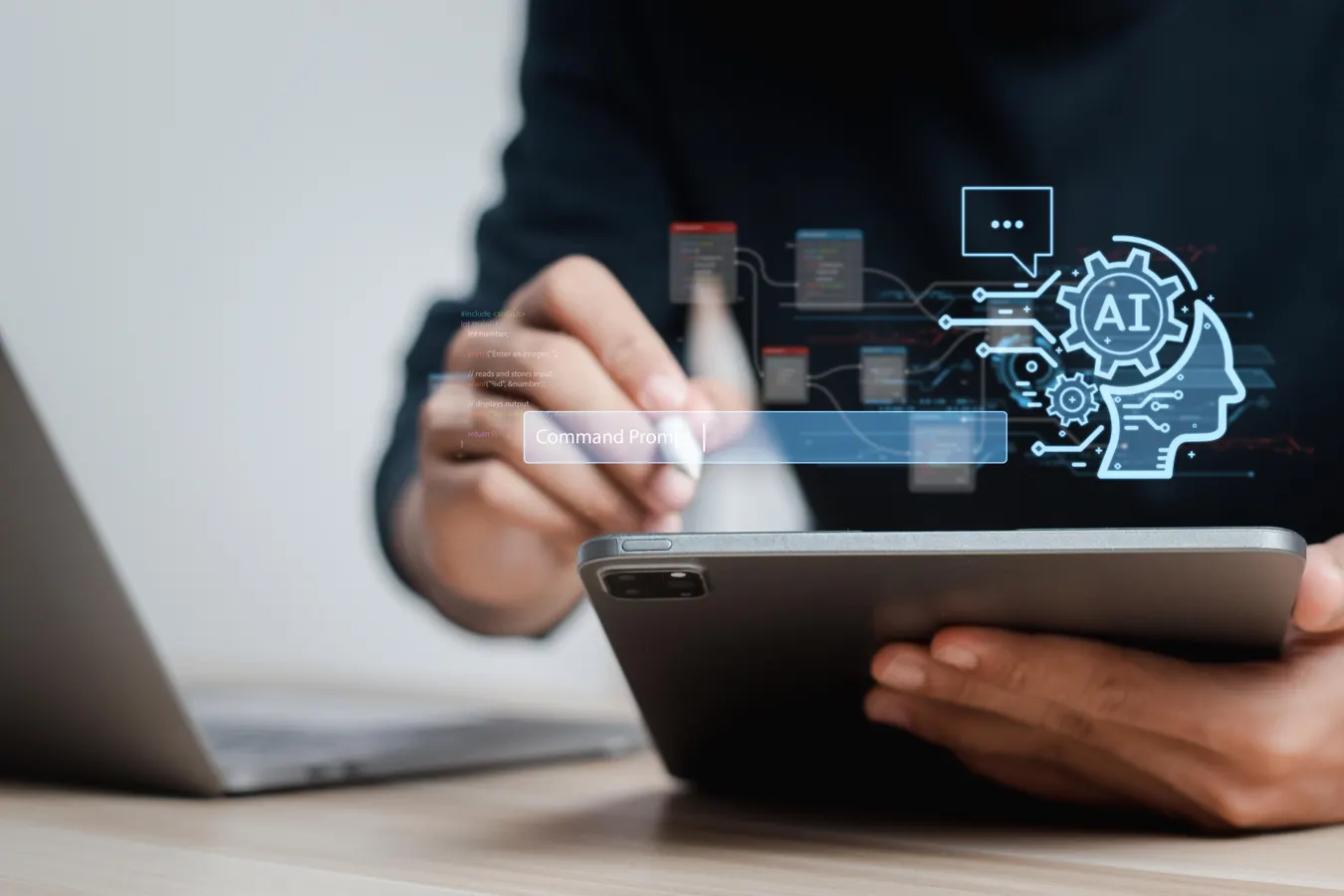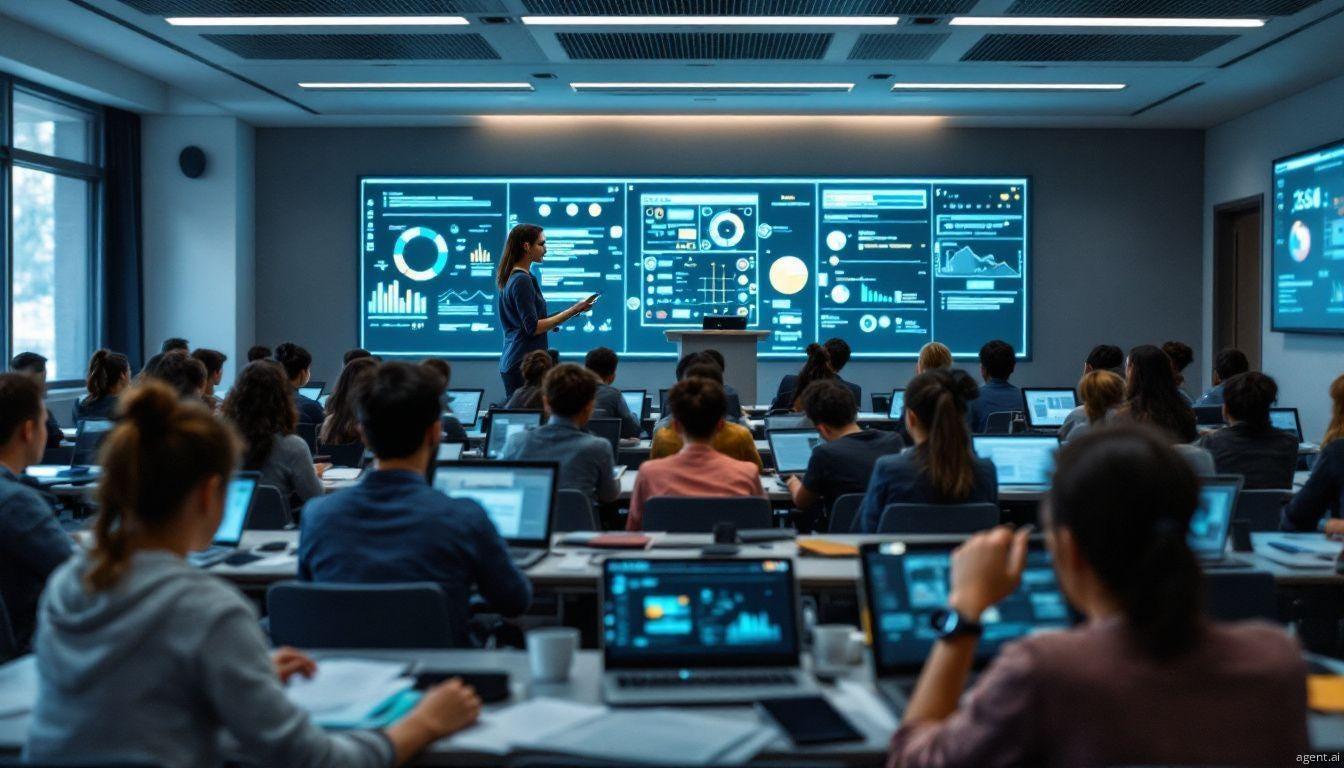The Rise of AI Tutors: Friend or Foe in the Future of Learning?
- Home
- The Rise of AI Tutors: Friend or Foe in the Future of Learning?

The Rise of AI Tutors: Friend or Foe in the Future of Learning?
- Dennis Anderson
The traditional education model faces increasing pressure. Students often struggle with personalized attention, diverse learning styles, and keeping pace with rapidly evolving knowledge. The one-size-fits-all approach frequently leaves many behind, leading to disengagement and suboptimal learning outcomes. This creates a significant gap between educational aspirations and actual student experiences, hindering overall progress.
Educators are burdened by large class sizes and administrative tasks, significantly limiting their ability to provide individual guidance and tailored support. This often results in a reactive rather than proactive teaching environment. The demand for highly skilled instructors far outstrips supply, especially in specialized fields, making quality education less accessible to many aspiring learners.
The digital age has introduced an overwhelming amount of information, making it difficult for learners to discern credible sources and synthesize knowledge effectively. Without proper guidance, students can feel lost in this information deluge, hindering their critical thinking and problem-solving abilities. The need for curated, adaptive learning paths is more urgent than ever.
Furthermore, the cost of quality education continues to rise globally, making it prohibitive for many. This disparity in access perpetuates societal inequalities, creating significant barriers to advancement for vast populations. Finding scalable, effective, and affordable educational solutions is a critical challenge that demands innovative approaches and technological integration.
Possible Causes of Educational Challenges
- Limited Personalization: Classrooms often struggle to cater to individual learning paces and styles, leading to disengagement. Studies show 70% of students desire more personalized experiences.
- Teacher Overload: Educators face immense pressure from large class sizes, curriculum demands, and administrative duties, reducing time for one-on-one interaction.
- Access Disparities: Geographical location and socioeconomic factors limit access to high-quality resources and expert instructors, creating significant educational gaps worldwide.
Proposed Solutions for the Future of Learning
Personalized AI Tutoring Systems
One promising avenue involves sophisticated AI tutoring systems designed to adapt to each student's unique learning trajectory. These platforms analyze performance data, identify knowledge gaps, and recommend tailored content. This ensures every learner receives the specific support they need, exactly when needed.
Utrixaaso believes such systems can provide instant feedback and explanations, breaking down complex topics. This adaptive approach fosters deeper understanding and builds confidence, moving beyond rote memorization to true comprehension. It transforms passive learning into an active, engaging experience. 
AI-Enhanced Educator Support Tools
Another vital solution focuses on empowering human educators with AI-driven tools. These tools can automate routine grading, generate personalized practice questions, and flag struggling students. This frees up teachers' valuable time, allowing them to focus on higher-level tasks.
By offloading repetitive tasks, educators can dedicate more attention to mentorship, fostering critical thinking, and addressing complex needs. AI becomes a powerful assistant, augmenting human capabilities rather than replacing them, allowing teachers to focus on the human aspects of education.
Scalable AI-Powered Content Creation and Curation
A third solution addresses the need for constantly updated and diverse learning materials. AI can rapidly generate new educational content, summarize vast information, and curate relevant resources. This ensures curricula remain current, engaging, and reflective of modern knowledge.
This capability is crucial in fast-evolving fields where textbooks quickly become outdated. AI can help create interactive simulations, virtual labs, and dynamic case studies, making learning more immersive and practical. It democratizes access to cutting-edge knowledge globally.
Potential Risks and Recommendations
- Data Privacy Concerns: Extensive collection of student data by AI systems raises significant privacy issues. Recommendation: Implement robust encryption, anonymization protocols, and strict adherence to global data protection regulations.
- Over-reliance and Skill Erosion: Students might become overly dependent on AI tutors, hindering independent problem-solving and critical thinking. Recommendation: Design AI systems to encourage active learning, prompt self-reflection, and challenges.
- Algorithmic Bias: AI models trained on biased data can perpetuate existing educational inequalities. Recommendation: Regularly audit algorithms for fairness, diversify training datasets, and involve diverse groups in development.
 Utrixaaso
Utrixaaso
Comments 4